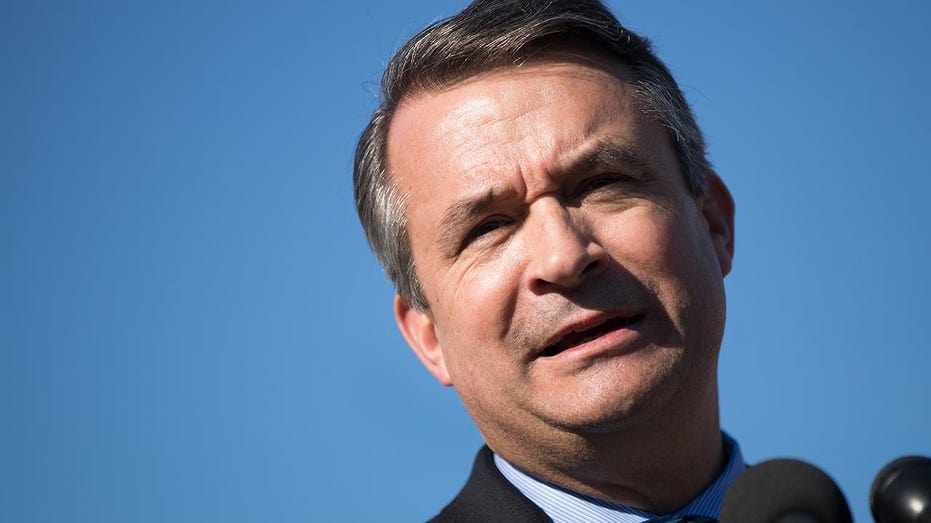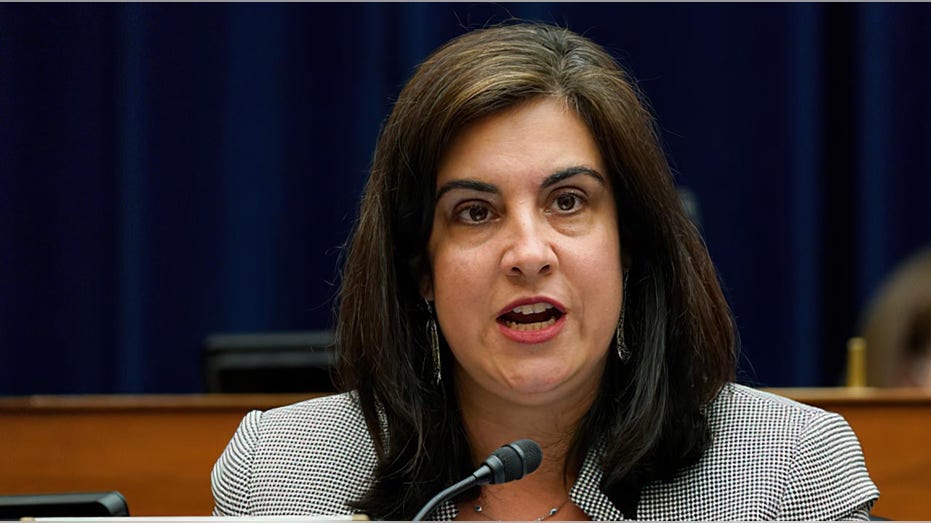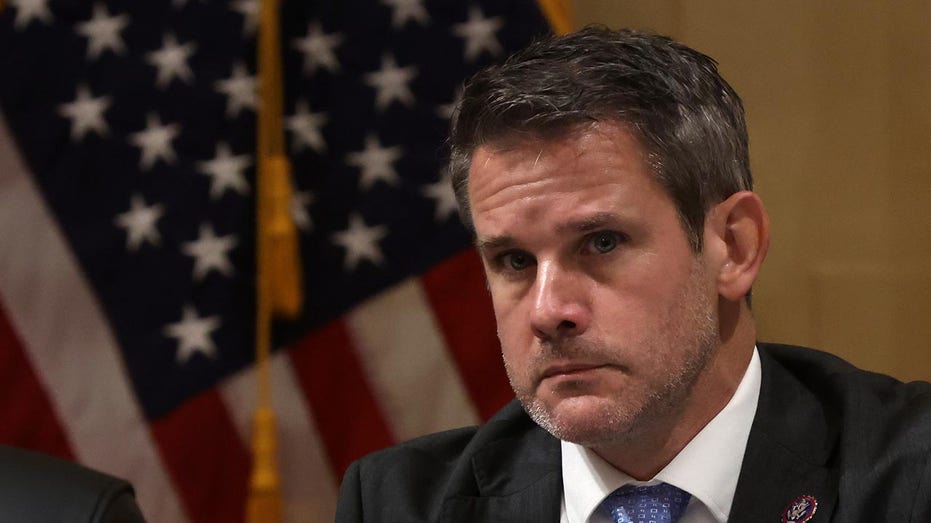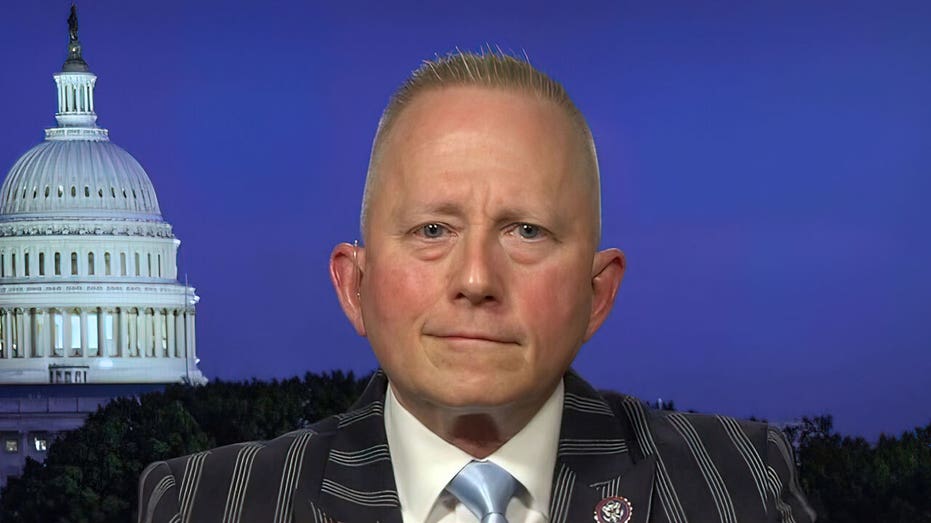Meet the 13 Republicans who voted for the infrastructure bill
Thirteen Republicans pushed the bill through despite opposition from progressive members of the House
President Biden remarks on the passage of the Bipartisan Infrastructure Deal
President Biden remarks on the passage of the Bipartisan Infrastructure Deal
The House of Representatives voted 228-206 on Friday to pass a $1.2 trillion infrastructure bill, which could not have passed without the support of 13 Republicans who pushed it through despite opposition from six progressive members of the House.
Here are the GOP members who pushed the bill across the finish line.
Rep. Don Bacon of Nebraska
Bacon has represented Nebraska's 2nd Congressional District since 2017.
Bacon told Axios that he faced a damned-if-you-do, damned-if-you-don't choice with the bill, telling the outlet he did what he felt was right when he voted for it.
"You vote one way, maybe it hurts in the primary," he said. "You vote the other way ... in my district, it'd hurt me in the general." He said he felt "pressure" from his GOP colleagues on the floor to vote against the bill, but maintained that his constituents supported the legislation overall.
"I helped draft this bill," Bacon told Axios. "To do a flip wouldn't have been appropriate. Wouldn't have been right." He maintained that even if he faces a primary challenge because of his vote, he remains confident he will win.

Rep. Don Bacon in 2018. (Drew Angerer/Getty Images, File)
In a separate statement posted to his website, Bacon made clear that he remains firmly opposed to the social spending bill.
"Make no mistake. This is not the Bernie Sanders’ Socialist Budget Busting Bill, which would’ve cost American taxpayers their hard-earned money," he said. "When that bill does come to the floor for a vote, I will be a hard ‘NO.’"
Rep. Brian Fitzpatrick of Pennsylvania
Fitzpatrick represents Pennsylvania's 1st Congressional District, which includes all of Bucks County and a portion of Montgomery County.
In a statement on why he supported the bill, Fitzpatrick claimed the bill's passage is "a victory for not only the people of Pennsylvania, but for the entire country."\
"From the start, I have insisted on the passage of a hard infrastructure bill, delinked from any other partisan, social spending package. This bipartisan, physical infrastructure bill, which passed the Senate in August with strong Republican support, is entirely separate from the partisan reconciliation bill, which I oppose," he added.
Fitzpatrick faces reelection in 2022.
Rep. David McKinley of West Virginia
McKinley, who has represented West Virginia's 1st Congressional District since 2011, issued a statement about his infrastructure vote Friday, writing in part, "Tonight, instead of playing politics, I put America and West Virginia first."
After drawing a distinction between the infrastructure bill and the reconciliation bill, which he described as "reckless," McKinley went on to suggest that he voted for the infrastructure in part because of the internet, saying, "We’ve all heard stories of children in West Virginia sitting in parking lots to do their schoolwork because their homes are not connected to reliable broadband internet. Tonight, I voted for those kids, and to give the next generation of West Virginians hope for a brighter future."
Rep. Andrew Garbarino of New York
Garbarino, who represents New York's 2nd Congressional District, once served as a New York State assemblyman.
In a statement released the night the infrastructure bill passed, Garbarino defended his vote, writing, "After months of being held hostage by Progressive Democrats, the House was finally able to vote on the bipartisan infrastructure bill.
"Make no mistake, tonight’s vote was about roads, bridges, and clean water. It was about real people, and the tangible actions Congress could take to better their lives by rebuilding and revitalizing our nation’s crumbling infrastructure," he added.
Garbarino was also one of 35 Republicans who joined all Democrats in voting to establish the January 6 Commission. He faces another campaign in 2022.
Rep. John Katko of New York
In addition to voting for the infrastructure bill, Katko also voted to impeach Trump in January, voted to create the Jan. 6 commission in May, and voted to hold Steve Bannon in contempt in October.
"This bill will make a once in a generation investment in our nation's physical infrastructure including our roads and bridges, ports and waterways, broadband networks, electrical grid, clean water systems, and airports," Katko wrote in a statement. He went on to describe the bill as "a win for Central New York" and urged Biden to sign it, but also condemned the president's multi-trillion dollar social spending framework.
Katko is up for reelection in 2022.
Rep. Nicole Malliotakis of New York
Malliotakis, whose 11th Congressional District in New York covers Staten Island and southern Brooklyn, told Axios that she voted for the bill in an attempt to hamstring the far-left members of the Democratic Party, who view the infrastructure and Build Back Better bills as inextricable.
"I weakened their hand," she said. "They have no leverage now. I voted against AOC and the squad tonight."

Rep. Nicole Malliotakis in May 2021. (Susan Walsh-Pool/Getty Images, File / Getty Images)
Malliotakis also criticized Ocasio-Cortez for voting against the bill, telling the New York Post, "I think she did her district a disservice. New York City benefits more than any other part of the country. It’s all hard infrastructure and all things that we desperately need."
Rep. Tom Reed of New York
Reed, who was the fourth member of Congress from New York to support the infrastructure bill, did not make a statement after his vote Friday. He is not seeking reelection in 2022 following a sexual harassment scandal that came to light in March.
Rep. Anthony Gonzalez of Ohio
In addition to voting for the infrastructure bill, Gonzalez, who represents Ohio's 16th Congressional District, was also one of the 10 House Republicans who voted to impeach former President Donald Trump in the wake of the U.S. Capitol riot on Jan. 6.
Gonzalez announced in September he is not seeking reelection.
Rep. Adam Kinzinger of Illinois
Kinzinger, who represents Illinois' 16th Congressional District, was also one of the 10 House Republicans who voted to impeach Trump after Jan. 6.

Rep. Adam Kinzinger on Oct. 19. (Alex Wong/Getty Images, File / Getty Images)
A six-term congressman, Kinzinger announced in October that he will not seek reelection in 2022.
Reps. Jeff Van Drew and Chris Smith of New Jersey
Van Drew and Smith, who represent New Jersey's 2nd and 4th Congressional Districts respectively, are the only Republican members of the House from New Jersey.

Rep. Jeff Van Drew on FOX Business. (File)
Both deleted their Twitter accounts earlier this year after voting against Trump's impeachment after Jan. 6. Both also face reelection in 2022. Van Drew was a Democrat until he switched parties in January 2020.
Rep. Fred Upton of Michigan
Upton, who has served Michigan's 6th Congressional District since 1993, described the infrastructure bill as "commonsense legislation that will support critical infrastructure project in [Michigan] without raising taxes or increasing the debt."
In addition to highways, harbors, and water pipes, Upton also pinpointed "broadband to underserved communities."
Upton faces reelection in 2022.
Rep. Don Young of Alaska
Alaska's only member in the House of Representatives, Young joined Sens. Lisa Murkowksi and Dan Sullivan in supporting the infrastructure bill.
"Was this bill perfect?" Young asked in a statement. "No, but truthfully, few pieces of legislation are. However, I firmly believe that we cannot sacrifice the good for the perfect. Very frankly, inaction on infrastructure risks our nation’s fundamental economic independence and strength."
CLICK HERE TO GET THE FOX NEWS APP
Young, who faces reelection in 2022, singled out the $3.5 billion the bill offers in federal highway funding for Alaska over five years as a reason for supporting it.




















